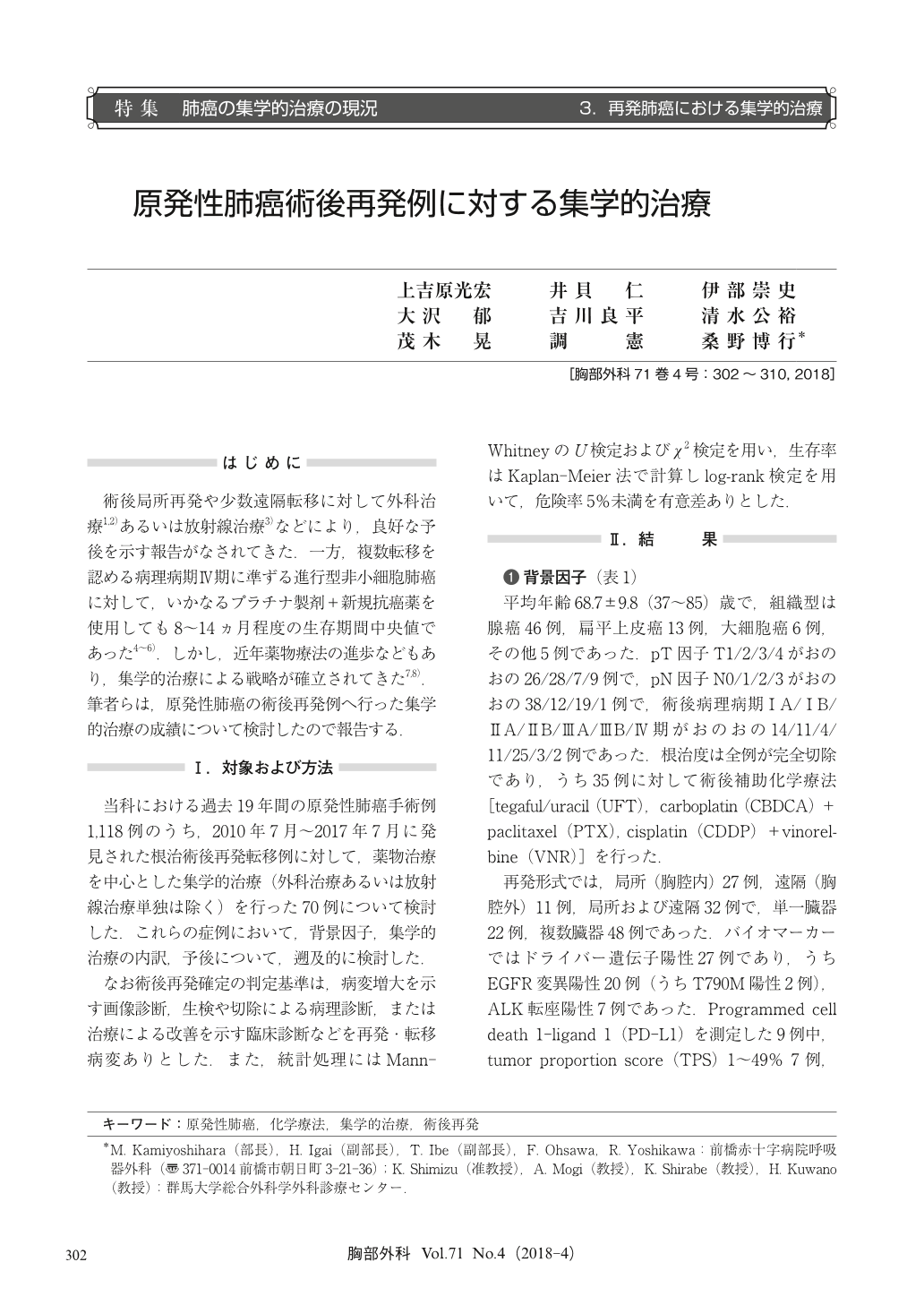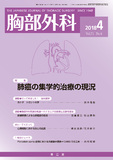Japanese
English
- 有料閲覧
- Abstract 文献概要
- 1ページ目 Look Inside
- 参考文献 Reference
- サイト内被引用 Cited by
術後局所再発や少数遠隔転移に対して外科治療1,2)あるいは放射線治療3)などにより,良好な予後を示す報告がなされてきた.一方,複数転移を認める病理病期Ⅳ期に準ずる進行型非小細胞肺癌に対して,いかなるプラチナ製剤+新規抗癌薬を使用しても8~14ヵ月程度の生存期間中央値であった4~6).しかし,近年薬物療法の進歩などもあり,集学的治療による戦略が確立されてきた7,8).筆者らは,原発性肺癌の術後再発例
Background:The standard approach for treating recurrence after complete resection of primary non-small cell lung cancer has been controversial. We present here a multidisciplinary strategy for postoperative recurrence in patients with primary lung cancer.
Patients and Methods:Over the last 7 years, we examined the disease-free survival and overall survival of 70 patients who underwent multidisciplinary treatment for recurrence after surgical resection of primary lung cancer.
Results:The median overall survival was 32.3 months after surgery and 17.4 months after recurrence developed, indicating significantly better prognoses in females and in patients with adenocarcinoma, stage I disease, driver mutation positivity, a longer postoperative disease-free period, and never smokers. Eight patients survived more than 5 years after recurrence;of these patients, all had adenocarcinomas, 7 had oligometastases and/or tumor dormancy, and 5 received multiple-drug regimens.
Conclusion:Multidisciplinary treatment for recurrence after resection of primary lung cancer was effective for patients receiving various drug regimens. In patients with oligometastases, disease control was achieved by a combination of local treatments targeting each involved organ. In patients with tumor dormancy, follow-up or a drug holiday was important to maintain the patient’s quality of life.

© Nankodo Co., Ltd., 2018


